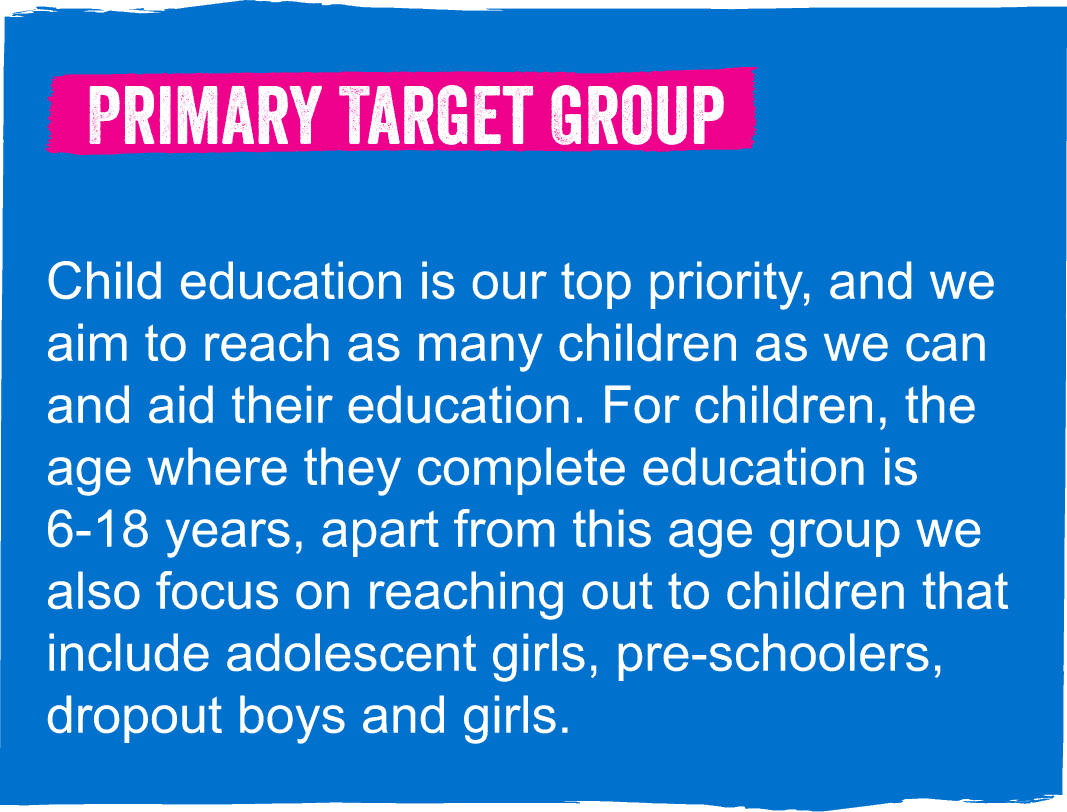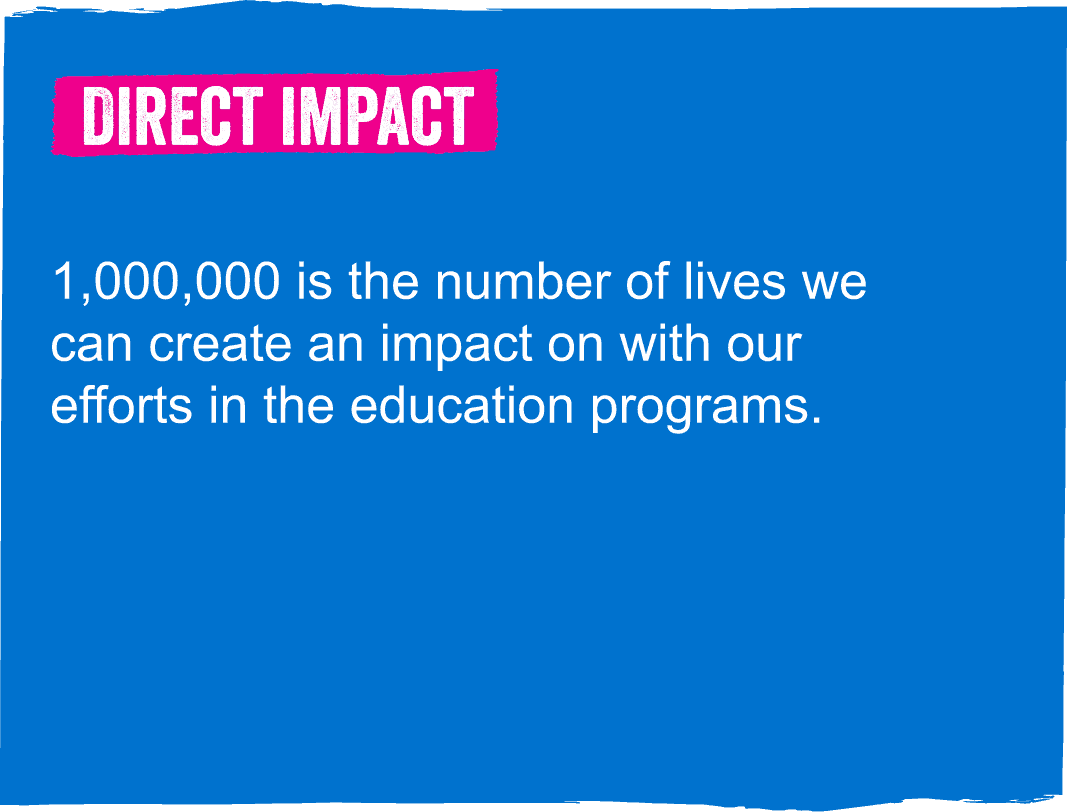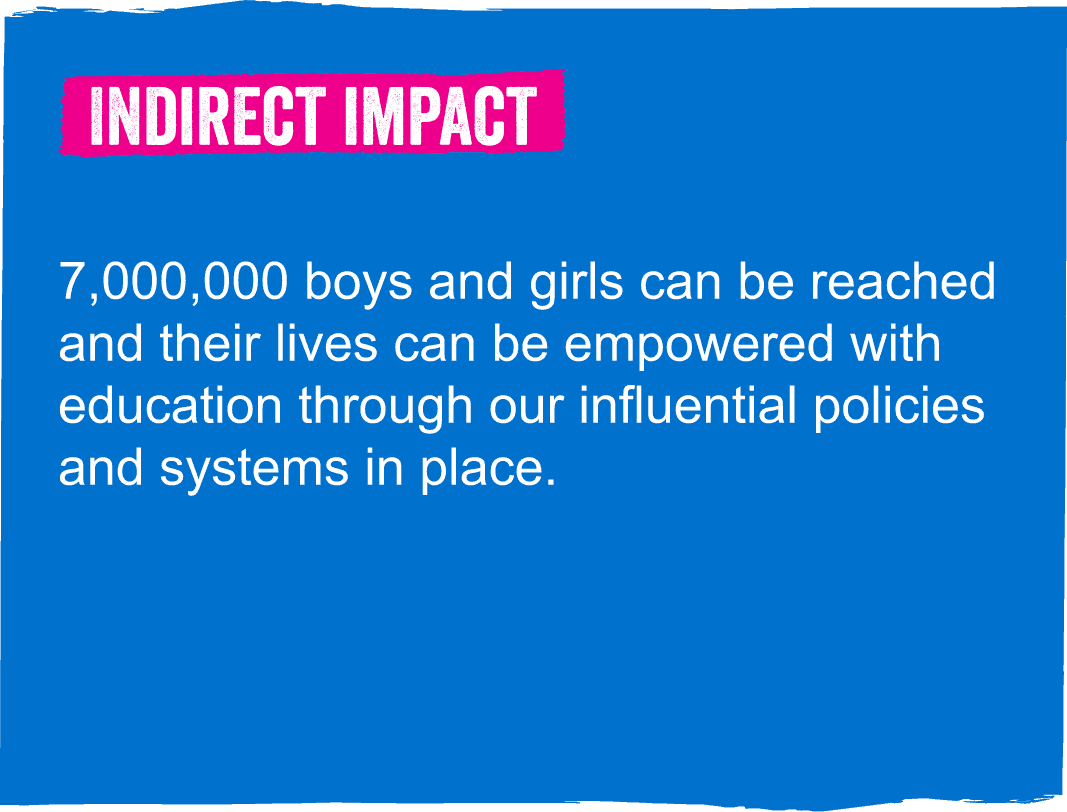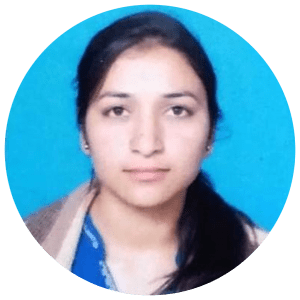We believe that all children, particularly girls from poor and disadvantaged families, access and complete education from pre-primary to secondary levels, thus realising their right to inclusive and quality education. However the realities reflect inequitable access to Early Childhood Education; poor learning outcomes in early grades which leads to learning deficits; discriminative social norms, gender-stereotyped curriculum and lack of an inclusive, protective environment within the schools. To address these barriers and to ensure all children, particularly vulnerable girls from excluded communities realize their right to an inclusive and quality education, Plan India has taken multipronged approach which includes:
![]() Improve technical capacity and investments in early childhood education.
Improve technical capacity and investments in early childhood education.
![]() Strengthen capabilities to provide onsite support to school teachers and School Governance.
Strengthen capabilities to provide onsite support to school teachers and School Governance.
![]() Pilot social innovations in gender sensitive curriculum and pedagogy both inside and outside the schools.
Pilot social innovations in gender sensitive curriculum and pedagogy both inside and outside the schools.
![]() Improve technical expertise in mobilising and promoting education with girls (dropped out, irregular or never enrolled).
Improve technical expertise in mobilising and promoting education with girls (dropped out, irregular or never enrolled).
![]() Building program convergence models with gender responsive Child Protection and SRH.
Building program convergence models with gender responsive Child Protection and SRH.
![]() Influence governments and donors to increase investment in Girls’ education.
Influence governments and donors to increase investment in Girls’ education.
Primary Target Group
Child education is our top priority, and we aim to reach as many children as we can and aid their education. For children, the age where they complete education is 6-18 years, apart from this age group we also focus on reaching out to children that include adolescent girls, pre-schoolers, dropout boys and girls.
Direct Impact
1,000,000 is the number of lives we can create an impact on with our efforts in the education programs.
Indirect Impact
7,000,000 boys and girls can be reached and their lives can be empowered with education through our influential policies and systems in place.



Stories of Change
SHIKSHANTAR

Shikshantar project was implemented from March to June 2021. It has been initiated to ensure continuity of education for children during the COVID-19 pandemic. The project team provided high-quality remedial education to children, particularly girls enrolled in grades VI to X in Delhi, Bihar, and Odisha. The initiative is aligning with the ‘Beti Bachao, Beti Padhao’ campaign of the Government of India including SDG 4.1 that aims to ensure that all girls and boys complete free, equitable, and quality primary and secondary education leading to relevant and effective learning outcomes 55 Youth Fellows were trained to provide remedial classes, track assessment through online MIS, and apply multiple strategies to support children in continuing their education.
MAKING LEARNING FUN AND SAFE
The Senpur Primary School in Ambedkar Nagar, Uttar Pradesh, has some 63 students and four teachers. Located in a tiny village, the facilities would not necessarily inspire children to come to school every single day. Senpur Primary was not always the pride of Ambedkar Nagar. A while ago, toilet facilities for students were sorely lacking. Girls especially did not regularly attend school due to poor hygiene conditions. The school had no safe drinking water or adequate grounds for the children to exercise. Open defecation around the school was in practice. These untenable conditions led to a grave increase in the school’s dropout rate over time. Both school and students had all but given up hope, that is, until a visit by Plan India’s staff.

EDUCATION PROMOTES GIRLS’ EMPOWERMENT

Manisha Semwal
Manisha Semwal had been engaging with the Plan India program since she was a little girl of 3 years old and sponsored by a donor in Sweden. Her family experienced vulnerability socially and economically. She has been involved in various activities of Plan India programs and took advantage of the opportunities to be a member of children’s clubs, adolescent groups, and youth groups, often playing a leadership role. Manisha also participated in the Knowledge Center established by Plan India and completed a six-month computer course here. Her parents have further participated in various training and livelihood programs, which helps them to support Manisha’s higher education. Taking a brave stance, Manisha refused to give in to her parents’ demands for an early marriage soon after her 8th standard.
Manisha has now completed her graduation B.Sc. and is currently working as a Constable in Uttarakhand Police. She has motivated many girls to go to school and join children’s clubs and be a constable. Her engagement in Plan India leads her to contribute to the well-being of other children in the community, specifically on the protection issues of children.
“First of all, I want to say to Plan India that you are doing a wonderful job in hilly and disaster-prone areas are so helpful for all the children & women especially girls here”, said Manisha.





